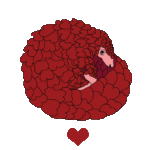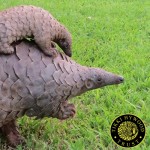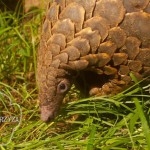A university student was recently arrested in Uganda, after he was found in possession of pangolin scales and illegal ivory from elephants and hippos.
The Independent reports that the student had four kilograms of pangolin scales, as well as 76 ivory hippo teeth and two elephant tusks.
The article went on to explain that the suspect was linked to local business man, Yokoyada Nuwagaba.
The incident adds to mounting concern for African pangolins, which are now being targeted for illegal traditional Chinese medicine markets.
Chinese national appears in court for smuggling pangolin scales and ivory from Angola
In March, People’s Daily Online reported that a Chinese national was in court after he was caught smuggling elephant ivory and six pangolin scales into China from Angola last year.
The contraband was discovered in his luggage at Hangzhou Xiaoshan International Airport and although he claimed he did not intend to sell the items, he apparently fled after he was busted by officials.
According to the report, the man– a construction company employee named Tan — faced a five year jail sentence; however, there does not appear to be any updates on the final outcome of the case.
African pangolins under threat
Black markets in East and Southeast Asia are now targeting the pangolins of Africa, as populations of Asian species have been severely reduced by illicit demand.
Although the scaly anteaters have traditionally been hunted as a protein source and for local superstition-steeped cultural uses throughout their African ranges, it seems this market may now be being exploited by East Asian consumers.
A 2010 blog article on the Alibaba Business Blog recounts some such individuals’ experience in the Niger River Basin, who watched as live pangolins be prepared for their dining enjoyment — including a mother and her baby.
In 2009, a shipment of 100 kg of pangolin scales was intercepted en route to Hong Kong from Côte d’Ivoire.
Two years later, Mozambique officials discovered pangolin scales hidden in a container of ivory and unprocessed timber — an incident that was ultimately linked to Miti, a Chinese logging company operating in the area.
The Last Great Ape Organization (LAGA) reports that a woman was also arrested in Cameroon in January, after she attempted to sell one giant ground pangolin.
There are four species of pangolin living across Africa:
- Three-cusped pangolin (Phataginus tricuspis) — ‘Near Threatened’
- Giant ground pangolin (Smutsia gigantea) — ‘Near Threatened’
- Long-tailed pangolin (Uromanis tetradactyla) — ‘Least Concern’
- Cape pangolin (Smutsia temminckii) — ‘Least Concern’
Pangolin crisis worsens
Demand for these animals stems primarily from China and Vietnam, where their flesh is consumed both as a delicacy and for perceived health benefits, and other pangolin body parts — especially their scales — are used to make ‘cure-all’ traditional Chinese medicines.
However, there is no scientific evidence to support any of the medicinal claims made about the scaly anteaters.
In fact, their highly coveted scales are comprised mainly of keratin — the same protein that makes up rhino horn and human hair and nails.
Laboratory studies have repeatedly found rhino horn to be void of any curative medicinal properties.
Like other endangered wildlife products, pangolin flesh and scales have even been found for sale on numerous popular websites.
It’s also believed that lucrative ‘medicinal use’ pangolin farms in China have accelerated the plight of the pangolins by stimulating demand for their body parts.
Author: Sarah Pappin. Read more about Sarah here.
Want to help? Check out our pangolin t-shirts: Project Pangolin is contributing $2.00 per t-shirt or hoodie to Education for Nature-Vietnam.







Comments are closed.